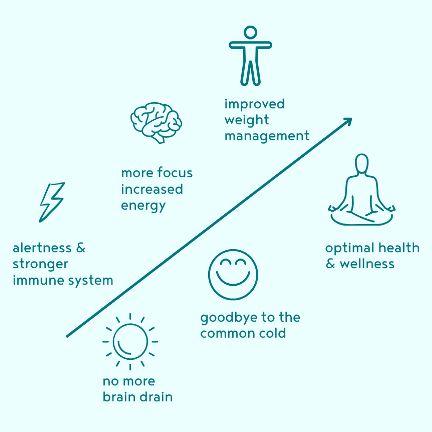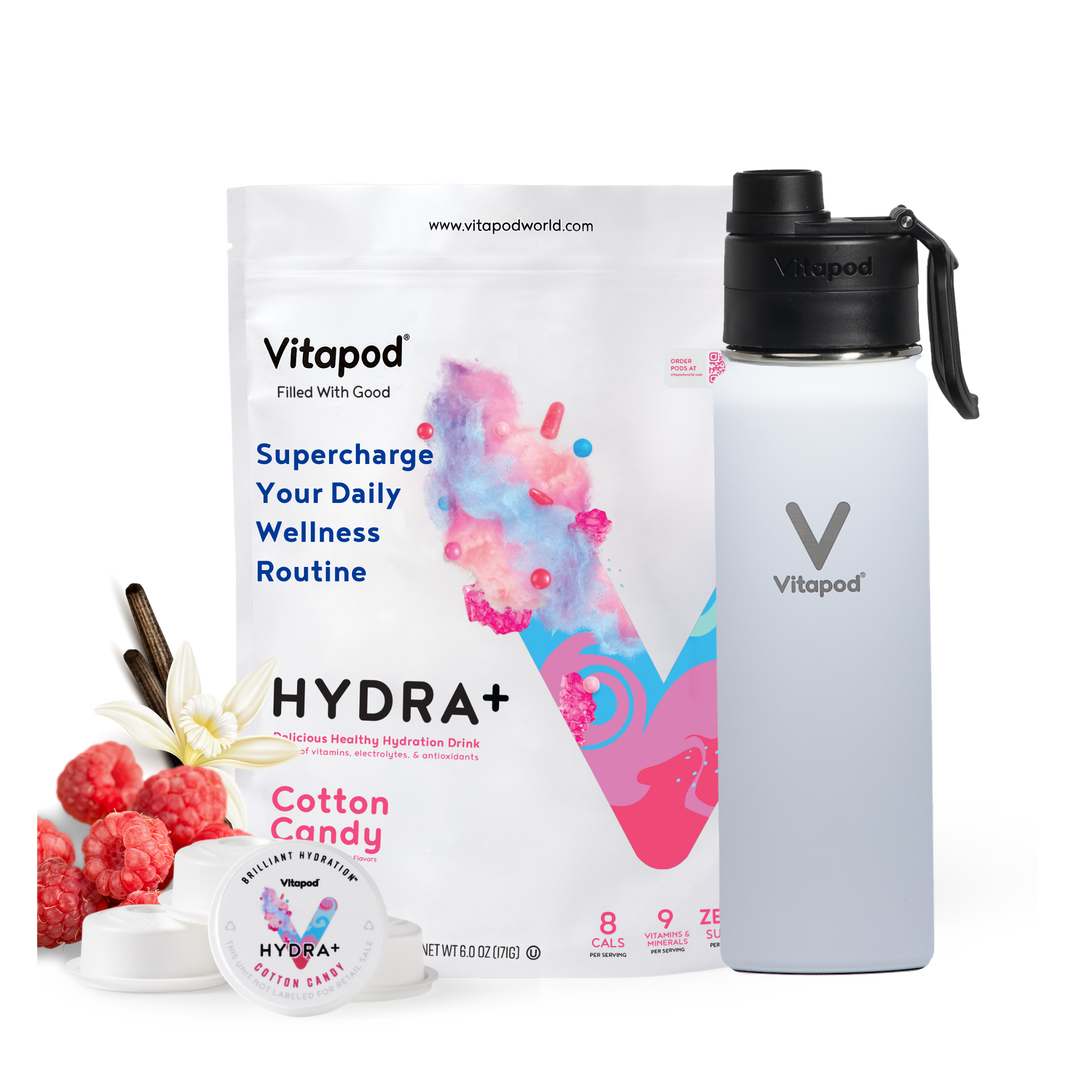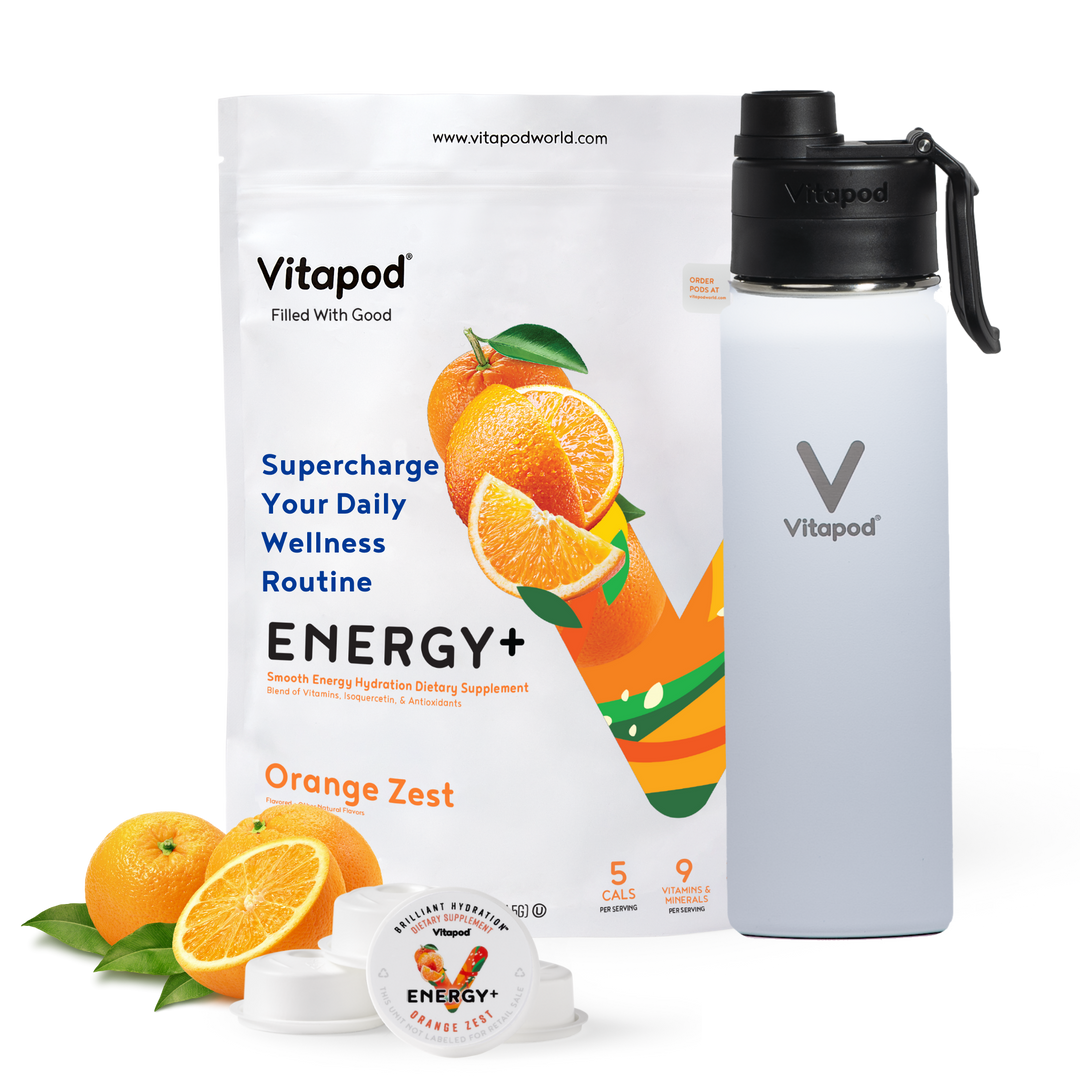Vitamins: Understanding Their Duration in Your System

Vitamins are essential nutrients that the human body needs to function properly. They are organic compounds that are found in small amounts in various foods and supplements. Vitamins are classified as either water-soluble or fat-soluble, and they play a crucial role in maintaining good health.
One common question people have about vitamins is how long they stay in the body. The answer to this question depends on several factors, including the type of vitamin, how it was consumed, and the person's overall health. Water-soluble vitamins, such as vitamin C and the B vitamins, are not stored in the body for long periods and are typically excreted in the urine within a few hours to a few days. Fat-soluble vitamins, on the other hand, are stored in the body's fatty tissues and liver and can remain in the body for longer periods.
What are Vitamins?
Vitamins are organic compounds that are essential for the proper functioning of the body. They are micronutrients that the body needs in small amounts but cannot produce on its own, so they must be obtained through diet or supplements. Vitamins play a crucial role in maintaining good health, as they help the body to grow, develop, and function optimally.
There are two main types of vitamins: water-soluble and fat-soluble. Water-soluble vitamins, such as vitamin C and the B-complex vitamins, dissolve in water and are not stored in the body. This means that they need to be replenished regularly through diet or supplements. Fat-soluble vitamins, such as vitamins A, D, E, and K, dissolve in fat and are stored in the body's fatty tissues and liver. This means that they can accumulate in the body, and excessive intake can lead to toxicity.
Vitamins are essential for a wide range of bodily functions, including:
- Supporting the immune system
- Promoting healthy skin, hair, and nails
- Maintaining healthy bones and teeth
- Regulating metabolism
- Supporting healthy vision
- Promoting healthy brain function
- Helping to prevent chronic diseases
Different vitamins play different roles in the body, and deficiencies or excesses of certain vitamins can lead to health problems. For example, a deficiency in vitamin C can lead to scurvy, while excessive intake of vitamin A can cause liver damage.
Vitamins are found in a variety of foods, including fruits, vegetables, whole grains, dairy, and meats. However, some people may not get enough vitamins from their diet alone, and may need to take supplements to meet their daily requirements. It is important to talk to a healthcare provider before taking any vitamin supplements, as excessive intake of certain vitamins can be harmful to health.
Water-Soluble Vitamins
Water-soluble vitamins are essential nutrients that the body needs to function properly. Unlike fat-soluble vitamins, they dissolve in water and are not stored in the body for long periods. This means that they need to be replenished frequently through the diet or supplements. The most important water-soluble vitamins are vitamin C and the B vitamins, including vitamin B6, folate, vitamin B12, thiamin, riboflavin, niacin, pantothenic acid, and biotin.
Vitamin C
Vitamin C is a powerful antioxidant that helps protect the body from damage caused by free radicals. It is important for the growth and repair of tissues, the production of collagen, and the absorption of iron. Good sources of vitamin C include citrus fruits, berries, kiwi, melons, tomatoes, peppers, and broccoli. Vitamin C is also available in supplements and multivitamins.
Vitamin B6
Vitamin B6 is important for the metabolism of protein, carbohydrates, and fats. It is also involved in the production of neurotransmitters, such as serotonin and dopamine, which regulate mood and behavior. Good sources of vitamin B6 include fish, poultry, potatoes, bananas, and fortified cereals. Vitamin B6 is also available in supplements and multivitamins.
Folic Acid
Folic acid, also known as folate, is important for the production of red blood cells and DNA. It is especially important for pregnant women, as it can prevent birth defects of the brain and spine. Good sources of folic acid include leafy green vegetables, citrus fruits, beans, and fortified cereals. Folic acid is also available in supplements and prenatal vitamins.
Vitamin B12
Vitamin B12 is important for the production of red blood cells, DNA, and the proper functioning of the nervous system. It is found naturally in animal products, such as meat, fish, and dairy, and is also available in supplements and multivitamins. Vitamin B12 deficiency can lead to anemia, fatigue, and nerve damage.
Vitamin B1
Vitamin B1, also known as thiamin, is important for the metabolism of carbohydrates and the proper functioning of the nervous system. Good sources of vitamin B1 include whole grains, meat, fish, and beans. Vitamin B1 is also available in supplements and multivitamins.
Niacin
Niacin, also known as vitamin B3, is important for the metabolism of carbohydrates, fats, and proteins. It is also involved in the production of energy and the proper functioning of the nervous system. Good sources of niacin include meat, fish, poultry, whole grains, and fortified cereals. Niacin is also available in supplements and multivitamins.
Pantothenic Acid
Pantothenic acid, also known as vitamin B5, is important for the metabolism of carbohydrates, fats, and proteins. It is also involved in the production of energy and the proper functioning of the nervous system. Good sources of pantothenic acid include meat, fish, poultry, whole grains, and fortified cereals. Pantothenic acid is also available in supplements and multivitamins.
Biotin
Biotin, also known as vitamin B7, is important for the metabolism of carbohydrates, fats, and proteins. It is also involved in the production of energy and the proper functioning of the nervous system. Good sources of biotin include eggs, nuts, seeds, and whole grains. Biotin is also available in supplements and multivitamins.
In conclusion, water-soluble vitamins are essential nutrients that the body needs to function properly. They are not stored in the body for long periods, so it is important to consume them regularly through diet or supplements. Vitamin C and the B vitamins, including vitamin B6, folate, vitamin B12, thiamin, riboflavin, niacin, pantothenic acid, and biotin, are some of the most important water-soluble vitamins. A healthcare provider or health professional can provide guidance on the appropriate intake of water-soluble vitamins, including any supplements that may be necessary.
Fat-Soluble Vitamins
Fat-soluble vitamins are vitamins that dissolve in fat and are stored in the body's fatty tissues and liver. These vitamins are different from water-soluble vitamins, which are not stored in the body and are eliminated in urine. Fat-soluble vitamins are essential for various body functions, including bone health, immune system, and vision.
Vitamin A
Vitamin A is a fat-soluble vitamin that is essential for vision, immune function, and skin health. It is found in animal products such as liver, eggs, and milk. Vitamin A is also present in plant-based foods such as carrots, sweet potatoes, and spinach. Excessive intake of vitamin A can be toxic and cause adverse effects such as nausea, headache, and dizziness.
Vitamin D
Vitamin D is a fat-soluble vitamin that is essential for calcium absorption and bone health. It is produced in the skin when exposed to sunlight and is also found in fatty fish, egg yolks, and fortified milk and yogurt. Vitamin D deficiency can lead to weak bones, muscle weakness, and an increased risk of heart disease and cancer.
Vitamin E
Vitamin E is a fat-soluble vitamin that acts as an antioxidant and protects cells from damage. It is found in nuts, seeds, and vegetable oils. Vitamin E deficiency is rare but can lead to nerve and muscle damage.
Vitamin K
Vitamin K is a fat-soluble vitamin that is essential for blood clotting and bone health. It is found in leafy green vegetables such as spinach and kale, as well as in liver and egg yolks. Vitamin K deficiency can lead to bleeding disorders and weak bones.
Fat-soluble vitamins interact with each other and with other nutrients in the body. For example, vitamin D helps the body absorb calcium, which is essential for bone health. Vitamin A supports the immune system and helps produce healthy skin. Vitamin E works with vitamin C to protect cells from damage. Vitamin K helps produce proteins that are essential for blood clotting.
In conclusion, fat-soluble vitamins are essential for various body functions and should be consumed as part of a balanced diet. However, excessive intake of fat-soluble vitamins can be toxic and cause adverse effects. It is important to consult a healthcare professional before taking vitamin supplements.
How Long Do Vitamins Stay in Your System?
Vitamins are essential nutrients that the body needs to function properly. They play a crucial role in maintaining good health and preventing diseases. However, the length of time that each vitamin stays in your system can vary depending on various factors.
Fat-Soluble Vitamins
Fat-soluble vitamins, such as vitamins A, D, E, and K, are stored in the body's fatty tissue and liver. The body can store these vitamins for days or even months. As a result, taking high doses of these vitamins can lead to toxicity and potentially harmful side effects. It is important to consult with a doctor before taking any vitamin supplements, especially fat-soluble vitamins.
Water-Soluble Vitamins
Water-soluble vitamins, such as vitamin C and the B vitamins, are not stored in the body for long periods. The body excretes excess water-soluble vitamins through urine. As a result, it is important to consume these vitamins regularly to maintain adequate levels in the body.
Vitamin Absorption
The body's ability to absorb vitamins can also vary depending on various factors. For example, taking vitamins with food can increase their absorption. Additionally, certain vitamins, such as vitamin C, can enhance the absorption of other vitamins.
Factors Affecting Vitamin Absorption
Various factors can affect the absorption of vitamins in the body. For example, the body's ability to absorb vitamins can decrease with age. Additionally, certain medical conditions, such as gastrointestinal disorders, can affect vitamin absorption. It is important to consult with a doctor if you have any concerns about vitamin absorption.
Vitamin Deficiencies
Vitamin deficiencies can lead to various health problems. For example, a deficiency in vitamin C can lead to scurvy, a condition characterized by fatigue, weakness, and swollen gums. A deficiency in vitamin D can lead to rickets, a condition characterized by weak bones and muscle weakness.
Conclusion
In conclusion, the length of time that vitamins stay in the body can vary depending on various factors. Fat-soluble vitamins can be stored in the body for long periods, while water-soluble vitamins are excreted from the body quickly. It is important to consume vitamins regularly and consult with a doctor before taking any vitamin supplements.









